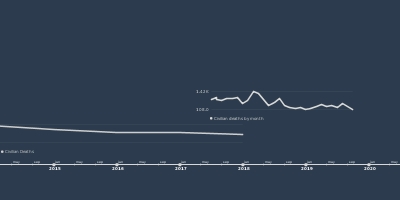sep 25, 2015 - France launches first airstrikes against Isis in Syria
Description:
Expansion of airstrikes from Iraq defended by French president François Hollande as self-defence following series of terrorist attacks in France
France has carried out its first airstrikes against Islamic State (Isis) in Syria after nearly three weeks of surveillance flights.
The French president, François Hollande, said the operation to “fight the terrorist threat” was coordinated with partners in the region.
“France struck in Syria this morning an Islamic State training camp which threatened the security of our country,” he told reporters at the United Nations, adding that six French jets had struck the Isis camp and warned of more strikes in coming weeks.
The targets were identified during surveillance missions conducted by French jets since 8 September.
The French government has insisted that although it is part of the US-led coalition, France will decide who and what to attack independently.
The airstrikes mark a turnaround in the French approach to the Syrian civil war. The president’s office said: “We will strike any time our national security is at stake.”
Hollande announced earlier this month that France would carry out surveillance with a view to eventual airstrikes against Isis, citing self-defence as his rationale. The decision came as the refugee crisis and the photo of drowned three-year-old Alan Kurdi sparked shock across the world. But France’s decision was influenced more by last month’s foiled attack by a suspected jihadi gunman who opened fire on a packed Amsterdam-Paris train.
As France faces what the government says is a high-level terrorist threat on home soil, and is still coming to term with January’s terrorist attacks by gunmen, who left 17 dead after targeting the satirical magazine Charlie Hebdo and a Paris kosher supermarket, the president has sought to send an important message to his electorate that France would be ready to strike back if there was any terrorist attempt on France.
The surveillance operation in Syria over the past weeks has been described by the government as targeting those who could be planning terrorist attacks on France.
The move to airstrikes shows how France’s strategy on Syria has evolved. Until now, France had been launching airstrikes on Isis extremists only in Iraq as part of the US-led coalition, and had resisted airstrikes in Syria because it did not want to be seen to be strengthening President Bashar al-Assad’s hold on the country.
France, the former colonial power after the Ottoman Empire broke up, has been one of the most outspoken western powers on Syria from the start of the crisis. Two years ago France was pushing for military action against Assad, resolving to punish Damascus over its use of chemical weapons on the Syrian people, but that move faltered without an international coalition of support.
This month the French president ruled out sending ground troops to Syria and said nothing should be done that could strengthen Assad or help him remain in power. “In the end, Assad must go,” Hollande said.
In his statement on Sunday, Hollande said: “Civilian populations must be protected from all forms of violence, that of IS [Islamic State] and other terrorist groups but also the murderous bombardments of Bashar Assad.”
Polls show that a majority of the French public favours military action in Syria. But at the French foreign ministry the emphasis is on politics and diplomacy as the only possible solution to the crisis.
The announcement of operations in Syria came the day before Hollande joins world leaders for the start of the UN general assembly in New York, where the four-year Syrian war is expected to be at the centre of debate.
Iran and Russia have given strong backing to Assad, who is regarded by the US and European countries including France as the instigator of the civil war, which has left an estimated 125,000 to 330,000 people dead and large parts of his country in the hands of Isis. Russia, meanwhile, has alarmed the west by strengthening its military presence in Syria in recent weeks.
On Saturday the US secretary of state, John Kerry, met his Iranian counterpart, Mohammad Javad Zarif, to discuss Syria. Washington refuses to accept a peace process that would leave Assad in power and so has backed and armed small “moderate” rebel groups. But that strategy appeared to be in tatters after the Pentagon admitted that the latest US-trained fighters to cross into Syria had given a quarter of their equipment to al-Qaida.
Added to timeline:

Syrian Civil War
Date:
Images:
![]()
